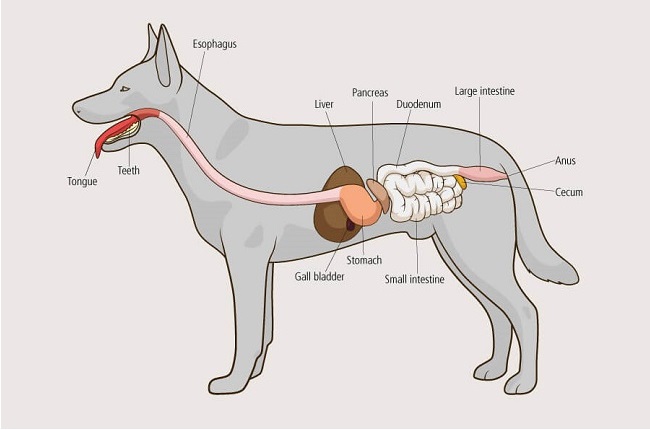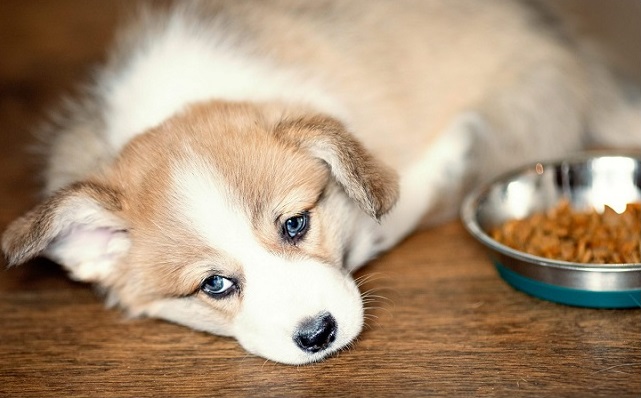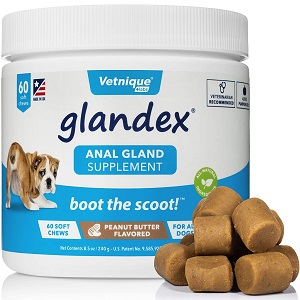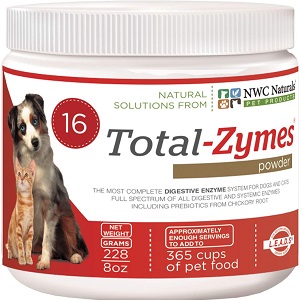Most of the pet parents gather all the relevant information about the anatomy of their dogs.
They do so to gain an informed insight into them so that they could make better decisions.
But if you have little to no knowledge about questions like how long does it take for a dog to digest food and poop, don’t worry we’ve got you covered!
If you’re looking for an answer right away, It takes 8-10 hours for a dog to digest food and poop.
However, if you are willing to dive in for a deeper understanding, we have covered all the major aspects of a dog’s digestion for you.

Table of Contents
- How Long Does it Take for Dog to Digest Food?
- Brief Introduction About the Canina Digestive System
- Fascinating Facts About Your Dog’s Digestive System
- Factors Affecting Your Dog’s Digestive System
- What Is Digestability?
- Foods That Your Dog Should Stay Away From
- Signs That Your Dog is Suffering from Digestive Problems
- How to Improve Your Dog’s Digestion?
- More Related Questions
- Final Words
How Long Does it Take for Dog to Digest Food?
According to PetMD, a canine digestive period can last anywhere between 8-10 hours. As this depends on the meal and type of breed, it can be within 4 hours as well as beyond 12 hours. For a better interpretation, let us look at the process of a dog’s digestive system.
Brief Introduction About the Canina Digestive System
It is crucial to have basic information about your dog’s digestive system that can help in resolving any issues about the same. For an easy understanding, we have broken down the process in the following manner:
1. Mouth
Just like human beings, a dog’s digestive system begins in the mouth. The dog’s teeth are not meant for chewing but rather tearing the food into small pieces. Their saliva consists of enzymes that help in breaking down the food to a chemical level.
2. Stomach
The food travels to the stomach through the esophagus, where the stomach acid breaks down the food even further. This is where partially-digested food is stored.

3. Small and Large Intestine
The food moves from the stomach to the small intestine. This is where most of the nutrients from the food are absorbed. The bile from the gallbladder is responsible for neutralizing any remaining stomach acid. The enzymes from the pancreas break down the food even further.
The intestine walls help the blood absorb the food’s nutrients and this is carried to all the parts of the body. The nutrients are metabolized in the liver.
4. Rectum
Any food particles that don’t have any nutritional value are pushed through the large intestine. The waste is stored in the rectum until there is enough accumulation. After that, it gets thrown out of the body in the form of stool.
Fascinating Facts About Your Dog’s Digestive System
Now you have an overview of a dog’s digestive system and the answer for how long does it take for a dog to digest food and poop. Let us flip through some of its most interesting facts.
- Dogs can only chew in an up and down motion. A side to side movement helps with a better grinding of the food.
- Dogs and humans aren’t very different after all, as they get heartburns too. However, after the meals, more amount of stomach acid is produced in a dog’s stomach as compared to human beings.
- In humans, the gastrointestinal transit time is 20-30 hours, while the same only takes 6-8 hours in dogs.
- Dogs can easily digest carbohydrates, but no benefit is generated from grain-free diets to dogs.
- Your dog’s digestive system remains unaffected by his/her cholesterol levels.
Factors Affecting Your Dog’s Digestive System
Just like every breed has different physical characteristics and personality traits, their digestive cycles can vary too. Several factors contribute to it, like the following:
1. Breed
As mentioned earlier, dogs differ based on their breeds. Each breed has varied physiological factors that can affect its digestive system. They will have different nutritional needs, due to which their digestive cycles will differ from one another.
2. Size
The size of your dog is an important factor. As larger dogs will require more amount of food, it might also lead them to have longer digestive cycles.
3. Age
As a dog ages, their digestive system gets weaker. This can lengthen the digestive process, and can also cause certain issues.

4. Activity
A proper routine of exercise plays a pivotal in affecting your dog’s digestive system. If you keep on feeding them despite them being inactive, their digestive cycles will slow down. Similarly, if they are hyperactive at all times, you will have to maintain their caloric levels.
5. Underlying Illness
If a dog is suffering from any digestive diseases like salmon poisoning, canine astroviruses, its digestive cycles are going to be slower and more painful.
6. Food Intake & Type
Even if this factor is the most obvious one, it is a crucial component. The food constituents directly impact digestion levels. Generally, wet food is digested easily, and dry food takes a longer period.
What Is Digestability?
If you have been researching about the digestive system of your dog, you might have come across the word “digestibility“. It means nothing but the food’s ability to give the necessary nutrients to your dogs. It is directly related to the quantity and the smell of your dog’s defecation and gastric levels. It is also a deciding factor in determining the long-term health of your canine best friend.
Foods with high digestibility give more amount of nutrients to your dogs. Similarly, food with low digestibility is where the acid is not absorbed into the body. This leads to more amount of excretion.
For a comprehensive understanding, let us take a small example. If you give your dog 100 lbs of food, out of which he/she defecates 20 lbs, the digestibility is 80.
The dog food digestibility can be categorized in the following manner:
If a portion of food has digestibility less than 75, it is considered to be of low quality.
If it is in the range of 75-82, it is a moderate option.
If it is more than 82, it is high-quality food, and should be preferred more.
Thus, it can be deduced that highly digestible food carries the ability to provide more amount of nutrients to your dog’s body. This can help in their overall growth.
Learn More: Read about is your puppy ready for adult dog food?
Foods That Your Dog Should Stay Away From
Your dog might look at you with their puppy eyes but you aren’t supposed to give in. Dogs will practically eat anything edible, but it is our duty, as pet parents, to give them something good for their health. After knowing how long does it take for a dog to digest food, it is necessary to know about the food items that are harmful to them. There are certain food items that your dog must be kept away from, like the following:
1. Chocolate
This is a no-brainer as this fact has been emphasized a lot of times. It contains Methylxanthine that is highly toxic for your dog’s health. It can even put a hold on their metabolic process.
2. Ice-cream
You should completely avoid the inculcation of sugar, especially ice cream. Some dogs are lactose-intolerant and this can affect their digestive system.
3. Almonds
Even though almonds aren’t necessarily bad for your dog, the shape and size can result in becoming a choking hazard.
4. Other Foods
There are other foods on the “no-no” list like onions, or garlic. It can give your canine amnesia, resulting in reduced heart rate and disturbance in the other vital organs.
Signs That Your Dog is Suffering from Digestive Problems
Your dog’s digestive system can function flawlessly on its own till it gets all the right amount of nutrients. But unexpected problems can occur due to any of the factors mentioned above.
If you have recently adopted a dog and don’t have any concrete education about them, you might have trouble figuring out any underlying issues. There are certain signs that you should look out for, like the following:
- Diarrhea and Constipation.
- Gas or Flatulence.
- Loss of appetite.
- Crying while passing the stool.
- Straining while passing the stool.
- Blood or mucus in the stool.
- Licking the anal area.
- Vomiting.
- Hard feces that look like small balls.
Read More: Are Dogs Carnivores or Omnivores | Does Your Dog Need A Veterinary Diet
How to Improve Your Dog’s Digestion?
None of us want our dogs to suffer and go through the pains that are followed by any digestive issues. It is necessary to take certain steps that can ensure a healthy digestive system for your dog.
1. Diet
It goes without saying that diet plays a major role in the digestive system. If you alter it, it can either have positive or negative repercussions.
As dogs are carnivorous in nature, protein is favorable for them. Dogs who are fed a high-protein, low-fat diet have seen a major improvement in their digestion. However, some dogs have sensitive stomachs. If your dog is on a chicken-based diet and dealing with indigestion, change it to a lamb or fish diet.
A fiber-rich diet can ease any indigestion pains. You can add beet pulp as it significantly improves the fecal quality in dogs. It is best to avoid any fatty ingredients as they’re difficult to digest. Check the ingredients and components on the dog food packet. If the proportion of fat is more, it is best to avoid it.
2. Exercise
As mentioned earlier, the digestive process of a dog can last anywhere between 4 to 12 hours. That being said, the food can be stored for a longer period of time in a dog’s stomach. This food can be turned into energy, depending on the activity levels.
If your dog exercises for a long period, it is necessary to balance it out with an increased caloric intake. Make sure you keep enough time gap between the meals and walking or exercising.
3. Raw Food
Even though the disadvantages of raw food have been highly endorsed, they can help with digestion problems. As raw foods contain natural enzymes, they break down the food, making it easier for the dogs to digest it.
On the other hand, raw food poses a threat of food poisoning. Even though raw food items should not be given daily, you can always consult your vet to get a crystal clear idea.
4. Hydration
Water isn’t only a survival tool but also plays an important role in your dog’s digestive system. It helps in breaking down the food particles along with the absorption of the nutrients. It also secretes the necessary enzymes and acid to smoothen the digestion process.
Keep enough accessible water in all corners of your house so that your dog doesn’t get dehydrated.
5. Fermented Foods
Fermented foods like yogurt, root vegetables, fish sauce, contain a significant concentration of microbes. They produce good bacteria in the gut that is necessary for a healthy digestive system. However, you must confirm it with your vet first as your dog might be lactose intolerant.
6. Supplements
Before the poor digestion takes a toll on your dog, try giving him/her the required supplements. Not only do they aid in providing good bacteria in the gut, but also helps in reducing the frequencies of digestive issues.
There are many reliable supplements available in the market that can provide all the necessary nutrients that might be absent in their daily diet. If you would like an expert’s recommendation, we advocate the following products:
Glandex Anal Gland Soft Chew Treats
This veterinary-recommended anal gland supplement by Glandex is scientifically formulated. It assists in naturally emptying the anal glands. This promotes a healthy digestive system and also keeps the seasonal allergies away from your dog.

NWC Naturals Total-Zymes Digestive Enzymes
The NWC naturals is an innovative blend of 16 digestive enzymes that helps in absorbing more nutrients from the food. It further decreases flatulence and fecal odors. As they do a wonderful job in breaking down the food, it blocks the development of the harmful toxins in your canine’s stomach.

More Related Questions
How long does food stay in a dog’s stomach?
The food in a dog’s stomach can stay put 8 hours. It can vary according to the breed, size, and type of diet.
How fast is a dog’s digestive system?
The food movement through the canine stomach is comparatively slower. However, it moves three times faster through the dog’s GI tract.
How long are dog intestines?
It is to be noted that the large intestine is shorter than the small intestine. Its average length in a dog is around 2 feet.
How long after feeding does a dog poop?
Your dog will want to defecate 5 to 30 minutes after eating. This can vary according to the type of meal, and the digestive system
How to flush a dog’s digestive system?
Keep your dog well hydrated, but also keep a check on the amount of water. Do not give any solid food for twenty-four hours. After that time frame, start giving bland boiled white rice. You can increase the proportions with the succeeding meals.
Final Words
If you are willing to raise a happy dog, you might as well have all the necessary information at your fingerprints. Besides knowing how long does it take for a dog to digest food and poop, you are now educated about all the related fields. If your dog is depicting an odd behavior or showing signs of painful defecation, do not wait for time to do the trick. Take them to the vet on an immediate basis.
Their health depends entirely on your decisions, so good and reliable choices are a must. Take all the necessary precautions and maintain the healthy functioning of your dog’s digestive system.
Also Read:
References:
When things come crashing down, Tiffany comes to the rescue! As a veterinary medicine graduate, she is the brain behind the in-depth analysis of the products. As an avid dog lover, she is earnestly driven to find the finest options. Any article on DogNeedsBest that has to do anything with your pet’s health goes under scrutiny before getting published.


